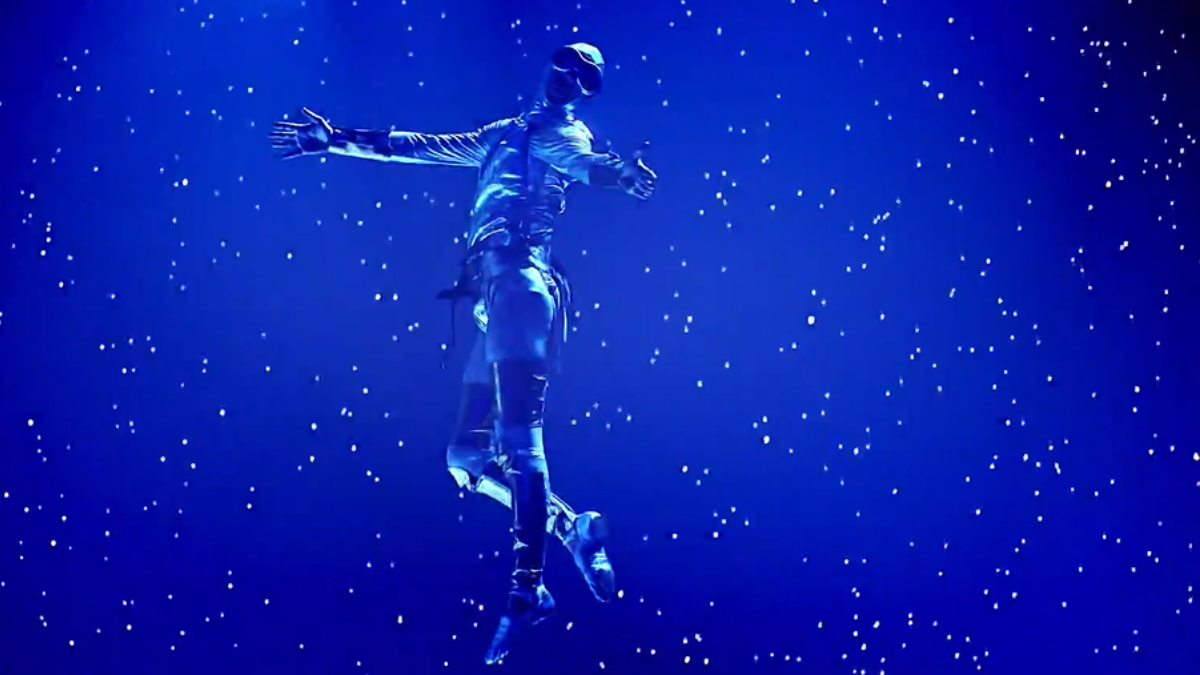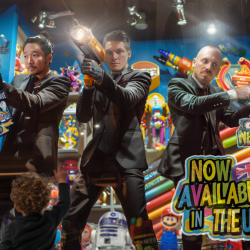When Moncler staged its Art of Genius spectacle at London’s Olympia in March, it took brand experience to a whole new level. 10,000 brand fans joined glitterati from FKA Twigs to Justin and Hailey Bieber for the ultimate collab activation. Jay-Z’s Roc Nation introduced community sourced music project The Art of All; Pharrell Williams’ The Art of Terrain was a surreal outdoor wonderland; while Palm Angels + Boiler Room put on a foam rave.
Immersive, interactive and inclusive, the event tapped into the zeitgeist and offered up so many eye-catching moments, all expressions of the brand strategy. It was not a sales event, the goal wasn’t to sell product per-se, but to position Moncler as a modern, culturally relevant and desirable brand. The best fashion brands are brilliant at grabbing attention at this really traffic-stopping level. In addition, they also understand what to do day-to-day in terms of social content, always-on storytelling, and inspiring the customer.
Despite having worked in fashion for years, I’m not a fashionista or obsessed with clothes
But I love the way fashion brands really understand how to build desire and create connections with their audiences. It’s like getting the laugh in comedy. You might love what Vuitton does or hate it. The single-mindedness and confidence, the directness and boldness. The ‘bang’ — there you go — and the audience either get it / like it or they don’t. And that’s fine with them
The best fashion brands are like cultural aerials — tuning into the current codes and making immediate, emotional connections. They understand the audience and the wider culture. Then they use multiple mediums to communicate with them — and often using non-conventional marketing methods. I think fashion is probably the most sophisticated marketing model of any sector because they understand that it doesn’t always have to be about selling you a puffer jacket tonight. They know about selling you a deeper kind of desire, by doing things that aren’t necessary, which is almost the definition of luxury.
Fans of fashion brands don’t just love their products; they love what the brand stands for.
Current audiences don’t want to be sold to; they want to feel the pull of affinity — moving towards something that feels like them. And so more businesses are shifting away from product-based marketing to something broader and more inspirational. Formerly ‘dry’ sectors are looking to connect through culture with a design-led look and feel. One example is Communion’s work with New Foundation Farms, which draws from radical, activist editorial design, and naturalistic art direction, standing out from farming clichés. A visual approach informed by fashion draws tuned-in people to the brand, from customers to potential retailers.
Fashion brands are great at building desire — but what does this mean in today’s culture?
When it comes to ethics and environmental impact, fashion is not historically very good in these areas. But it’s also one of the industries that’s trying to make the most change quickly. We know that consumers are increasingly (and rightly) demanding more of brands and expecting them to behave more responsibly. This is becoming an ever more important part of building desire and brand affinity so highlighting positive actions in brand communications is becoming a significant new challenge.
Circularity ambitions have been loudly discussed for years, but these are coming to fruition, with more recycling initiatives (see Zegna’s #UseTheExisting) and use of regenerative materials (see Stella McCartney S/S 2023).
As well as adapting to new legislation to protect communities and the environment, fashion brands are reading the room and creatively responding to consumer desire for something new and better. At Communion Studio, we help clients build more inspiring futures, bringing fashion’s modus operandi to companies that are ready to meet radical change.
Featured image: Moncler’s Art of Genius spectacle at London’s Olympia

























